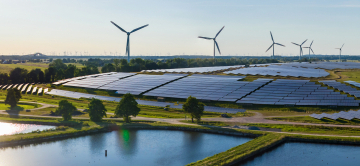This debate took place during the third edition of the Common Good Summit, organized jointly by TSE, Challenges and Les Echos-Le Parisien Evénements. On June 1 and 2, 2023, economists, economic decision-makers, representatives of public authorities and civil society came together to reflect on a central question: how can we save the common good? With over 1,300 participants and rich exchanges, this third edition confirms the importance of discussing tomorrow's issues together, from climate, mobility, food and inflation to health and artificial intelligence.
Does the car have a place in a low-carbon society? Will this question accentuate inequalities, reserving car use for the wealthiest?
"The mobility sector is the worst performer of the last thirty years in terms of decarbonization. Europe as a whole has reduced its carbon emissions by around 25% compared with 1990, but the mobility sector has actually increased its own. Christian Gollier, Director of TSE, makes this stark observation to Carlos Tavares, CEO of Stellantis, at the Common Good Summit.
According to the economist, automakers have improved the energy efficiency of their vehicles, but as we travel more kilometers, we emit more CO2 overall," he explains.
Then there's the question of acceptability: "We can clearly see from the Gilets jaunes movement that touching on mobility is socially very problematic. We need to lower the costs of switching to electric vehicles: that's the key to their social acceptability."
For his part, Carlos Tavares declares that Stellantis "has no problem with the ban on the sale of combustion-powered vehicles in 2035. On the other hand, this decision imposes a very profound, very rapid, even violent transformation of what we do."
He regrets, however, that "the cost of electric technology imposed by Brussels is 40% to 50% higher than that of combustion engines". Christian Gollier agrees: "Higher costs will lead to higher prices, and therefore to a problem of social acceptability.
Carbon tax
The economist reckons that by 2035, when consumers will no longer be able to buy combustion-powered cars, "which are up to half the price and more efficient", the question will arise as to whether to solve the problem through subsidies or a bonus-malus.
Hence the idea of a carbon tax! "In 2035, if we don't implement this measure at a level that is socially desirable, we'll have real tension when we see that used cars are cheaper than electric ones," warns Christian Gollier.
A view not entirely shared by Carlos Tavares: "If in Europe we want to protect our way of life with taxes, particularly on imports, the first consequence of this is that the middle classes will suffer from higher inflation."
Christian Gollier concedes that the energy transition is in fact inflationary. "But barring any future technological miracles, we also have a moral obligation to future generations," he concludes.
- Find out more about Christian Gollier
- Extracts from Challenges (in French)





